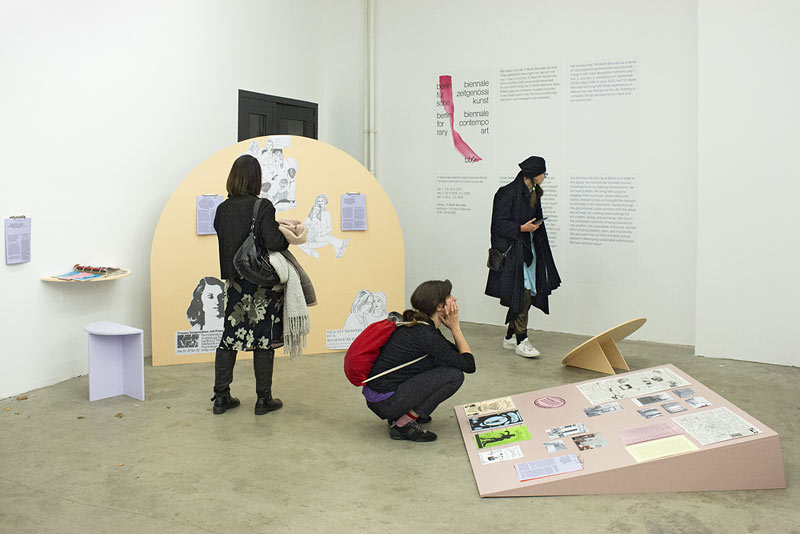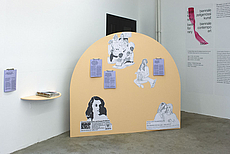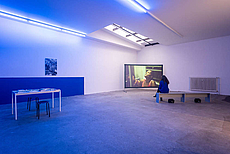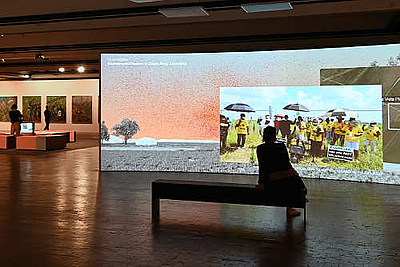Over the course of two decades, Virginia de Medeiros’s artistic experimentation has embraced the desire for a collective revolution of a social, political, and sexual scope. A militant in the field of queer subjectivity, Medeiros starts a three-month residency in Berlin with the presentation of her film Trem em Transe [Train in Trance] (2019). Its protagonist is Simone, a self-styled transvestite who embodies eagerness to reverse the intolerable level of social abandonment that she had experienced. Simone was “reborn” in the person of pastor Sergio Santos after an overdose-provoked “revelation.” The staples of a previous life, crack and prostitution, were exorcised as part of a long-standing cure. In her home country of Brazil, the life expectancy of transgender people is about 35 years. For these human beings in distress, mysticism and spiritualism are used as a way of achieving care and affection. Nevertheless, the robes of Neo-Pentecostal liturgy are unable to contain the ancestral vibration of Candomblé. While despair has overtaken the entire body, it has not yet dissolved its bindings with the territory. The tremor that yields the trance ends up giving way to an indomitable lust for life. As the camera enters into the circular movements made famous by Glauber Rocha’s 1960s Cinema Novo, Medeiros prefers to move around and forgo allegory as a way of directly challenging the open veins of fanaticism.












